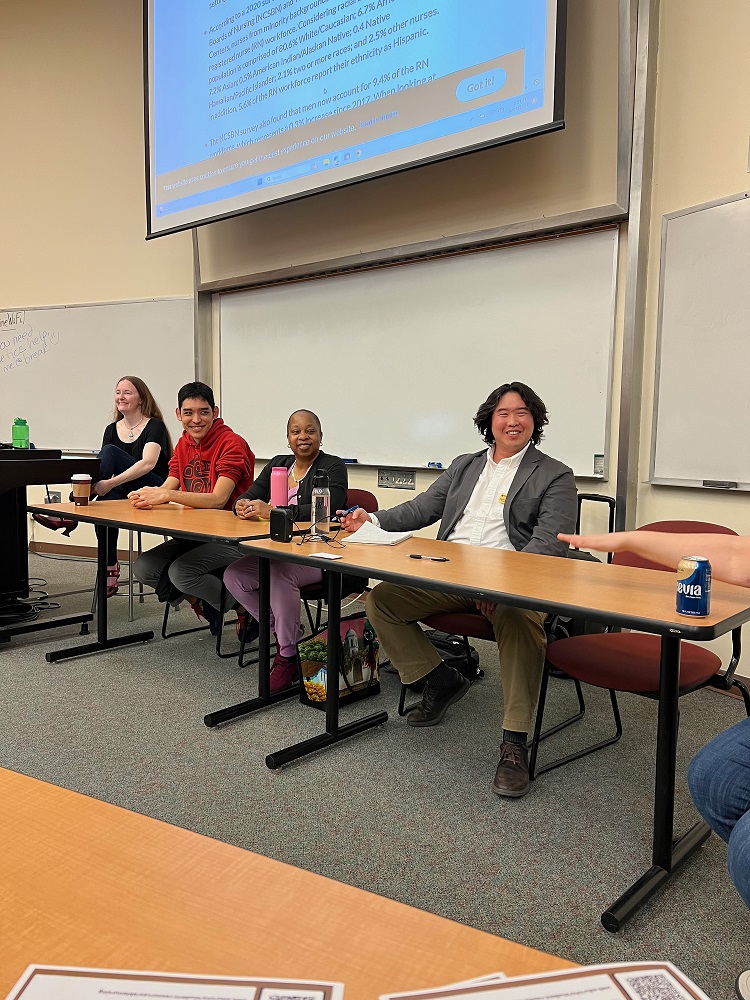Discussing Representation with Nursing Students at Shoreline Community College

“What is representation? What does it mean? Is it important? If so, why?”
Niki Kirby, MSN, RN, NPD-BC, and Carley Borgen, MSN, RN, CNE, who are both instructors in the Associate Degree in Nursing (ADN) program at Shoreline Community College, asked their nursing students. Then, they asked the same questions to the three special guests: Kosuke Niitsu, PhD, ARNP, PMHNP-BC; Christopher Kobayashi, ADN, RN; and Victoria Sandoval, ADN, RN.
Niitsu is an Assistant Professor in the School of Nursing & Health Studies at the University of Washington Bothell (UW Bothell). He teaches in the RN-to-BSN program at UW Bothell where ADN-prepared nurses can receive a Bachelor of Science in Nursing (BSN) degree in one year. Kobayashi and Sandoval are former students of the ADN program at the Shoreline Community College. Kobayashi is currently enrolled in the RN-to-BSN program at UW Bothell, and Sandoval is completing her BSN degree at the Bellevue College.
To answer the questions, Niitsu introduces a few statistics about the nursing workforce in the United States. For example, among about 5 million RNs, about 90% are female, and 80% are White/Caucasian. Additionally, only about 2% of them hold a doctoral degree, such as Ph.D. (Doctor of Philosophy) and DNP (Doctor of Nursing Practice). Niitsu identifies himself as a PhD-prepared Asian male nurse, and he jokingly said to the audience, “You are looking at an extremely rare species”. After pointing out related issues, such as implicit bias and stereotype, Niitsu emphasized, “I think representation is important to address the inclusivity”. Kobayashi and Sandoval agreed with him and shared their experience with belonging to the underrepresented groups in nursing. Furthermore, the audience asked them about career advancement in nursing, including earning BSN. Kobayashi and Sandoval provided them with tips about when to enroll and their current experience of what it is like to be a student in the RN-to-BSN program.
Jolie Lucero, Retention Specialist with the ABLE Program, and Karina Rodriguez, Transfer Admissions Counselor, also participated in this community-engaged class. As a way to address representation in nursing, they mentioned the ABLE (Advancing BIPOC Learning & Engagement) Scholar Nursing Progression Project. BIPOC students in the ADN program at the Shoreline Community College, Everett Community College, Highline College, or Tacoma Community College are eligible to apply for the ABLE scholarship if they enroll in UW Bothell’s RN-to-BSN program.
“The students truly appreciated the conversation”, said Kirby. “After the class was over, they shared in their discussion posts themes of how inspired they were by their stories and how it is encouraging them to foster more inclusive environments. There were also themes of how they left the class feeling empowered to pursue their future goals”.